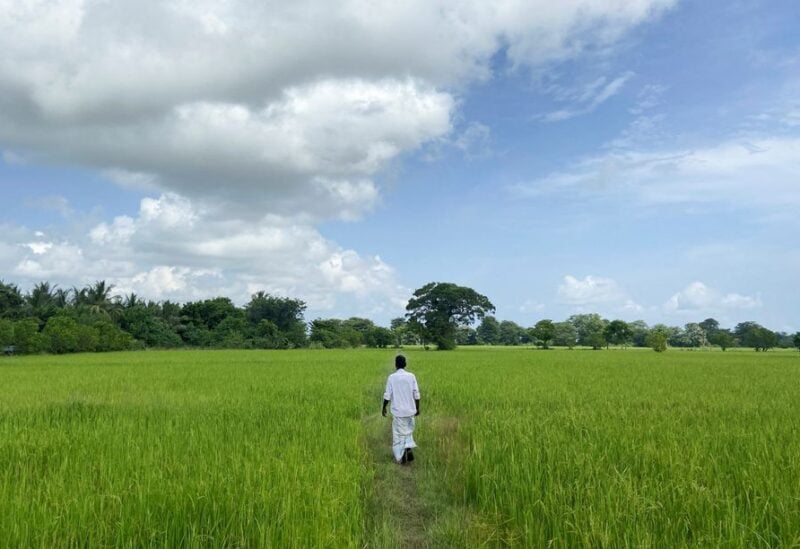
Nallathambi Mahendran, 67, a farmer, walks through his paddy field, amid the country's worst economic crisis, in Kilinochchi, Sri Lanka July 28, 2022. REUTERS/ Devjyot Ghoshal
For the third time now, someone has told me the parable of a Chinese farmer from 2,000 years ago.
I think that means something. Not just to me, but as a sign of our times.
First, an instructor shared the story with my yoga class. Then a college professor told it during a career seminar, and last week, a minister I was interviewing mentioned the tale.
That’s a pretty diverse group.
The details differ slightly, but the essence is the same:
A Chinese farmer gets a horse, which soon runs away. A neighbor says, “That’s bad news.” The farmer replies, “Good news, bad news, who can say?”
The horse comes back and brings another horse with him. Good news, you might say.
The farmer gives the second horse to his son, who rides it, then is thrown and badly breaks his leg.
“So sorry for your bad news,” says the concerned neighbor. “Good news, bad news, who can say?” the farmer replies.
In a week or so, the emperor’s men come and take every able-bodied young man to fight in a war. The farmer’s son is spared.
Good news, of course.
It’s easy to understand why the ancient story of the Chinese farmer resonates now, in times that seem way too full of bad news.
The tale of the farmer is said to be Taoist. Taoist (pronounced Dow-ist) theology emphasizes themes such as naturalness, peace, effortless action, detachment and receptiveness.
The farmer’s tale captures many of those. In short, it reminds people that it’s best not to get too upset — or attached — to what happens to us. Even something that seems dark and confounding can turn out to be an opportunity, when looked on in hindsight.
The story resonated most strongly in the career seminar I attended recently. Many there had lost their jobs, and the professor told them, “It might seem like bad news now, but you might look at it later as the best thing that ever happened.” He said he knew scores of people for whom a job rupture turned out fortuitously — including himself.
It’s easy to dismiss the fable as being Pollyannaish, but how many of us have had something not turn out the way we wanted — only to find out that something way better was in store?
People who grew up in the Depression suffered greatly, of course, but they learned to rely on family, friends and, when tested, their own ingenuity. Those skills molded them into people who seem, to many of us now, much smarter about taking care of their money than those of us who, despite warnings, rack up credit card debt.